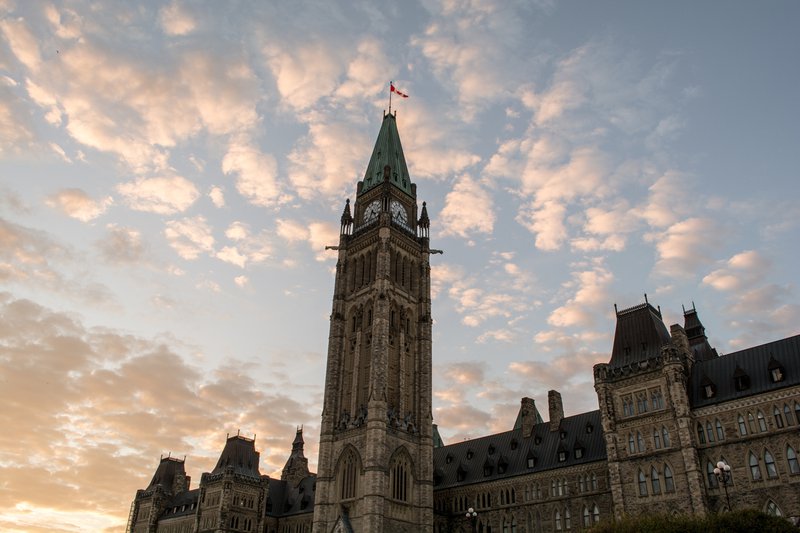
Alex Ballingall
June 16, 2020
OTTAWA—Time is running out.
According to Carleton University professor Jennifer Robson’s reading of government statistics, more than 2 million people could clock out of the Canada Emergency Response Benefit (CERB) at the beginning of July. That’s when the first wave of recipients is set to crash against the end of the 16-week eligibility period for the payout program that was designed to support people who lost work during the pandemic crisis.
Unless the government changes course, the window for people to receive CERB will keep closing until the program — Ottawa’s answer to the massive job losses of the pandemic that has doled out more than $43 billion since early spring — winds up in the fall.
What will happen when it’s gone?

That question is starting to poke through the politicking and analysis of Canada’s response to COVID-19. And Prime Minister Justin Trudeau cabinet is already exploring what to do about it.
“Some number of people will be lucky enough to move into EI, but I worry about delays in the benefits getting paid,” Robson said by phone on Wednesday, referring to wait-times for employment insurance before the federal government crafted its pandemic-specific jobless benefit.
“I also worry about the people who are not eligible for EI and what are the options available to them. And those don’t look good,” she said, pointing to provincial welfare programs or the “underground” economy.
In Ottawa, the Liberal minority government — armed with proposed legislation that targets CERB fraudsters, among other things — has made clear it hopes people can return to work under a different program, the Canada Emergency Wage Subsidy, which is supposed to prop up jobs in the troubled economy with government cash to cover up to 75 per cent of businesses’ wage costs.
For David Macdonald, senior economist with the Canadian Centre for Policy Alternatives, “the wage subsidy ship has sailed” — and there remains a great deal of uncertainty around when and how the pandemic lockdowns will be lifted so that greater economic activity can start up again. As of Monday, the government had paid out just $10 billion through the wage subsidy that was originally budgeted for $73 billion.
Macdonald said the government may have to look at different options if the uptake on the subsidy doesn’t gain steam in the coming weeks. The New Democratic Party is already calling for the CERB to be extended for at least another 16 weeks, with Leader Jagmeet Singh pushing the Liberal government to offer the program for as long as it is deemed necessary.
Macdonald said an extension makes sense, especially if the only alternative for many CERB recipients is to return to the EI system he described as less efficient and less generous. But he also argued that the crisis has shown the government should reform the EI system to incorporate some of the brightest aspects of the CERB, which Macdonald described as a “clear success” with its $500-per-week payouts.
“We need to take some of the elements of the emergency benefit and incorporate it into a new modern EI system that’s not built on the computers of the 1970s and the working world of the 1970s,” Macdonald said.
For instance, the speed and simplicity of the CERB application process, as well as the eligibility of gig workers and people who need to quit their jobs to care for children, could be part of a new program, he said.
But such an overhaul would not happen in the short term, Macdonald said, suggesting the government could extend CERB for “another month or two while we build a more modern EI system.”
Robson, the Carelton professor, agreed the EI system needs to be changed, but suggested that Ottawa could create a temporary system to replace CERB instead of extending it through the pandemic crisis. Robson said this could be delivered through the Canada Revenue Agency — just like the CERB — and include lower payouts closer to EI benefit rates earnings, with the requirements to report regularly on any income and efforts to find work.
“The framework I’m thinking of here is kind of rehab,” Robson said. “You try and give people transitional supports until they’re actually able to be more self-sufficient.”
Speaking in the House of Commons on Wednesday, Trudeau said the government is “in discussions” about the future of CERB, but did not say what it will do when the benefit starts to run out. Nevertheless, as he has done throughout the crisis, the prime minister promised his government “will continue to be there to support Canadians who need it.”
With files from Heather Scoffield Alex Ballingall is an Ottawa-based reporter covering national politics for the Star. Follow him on Twitter: @aballinga


